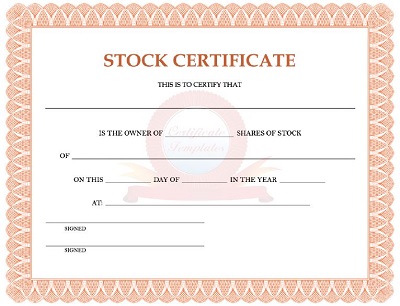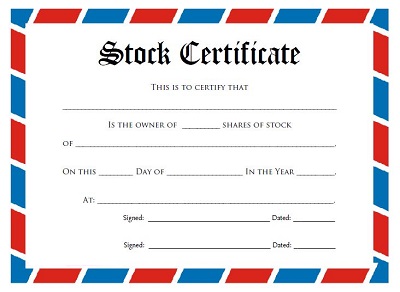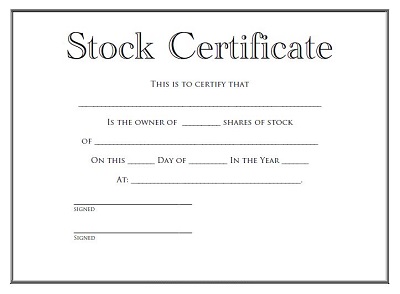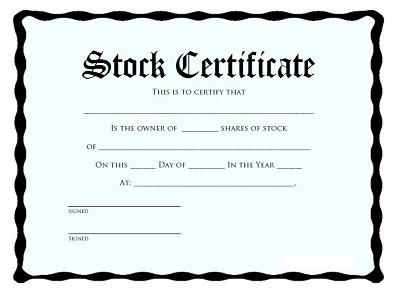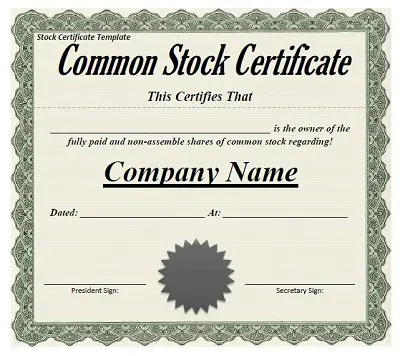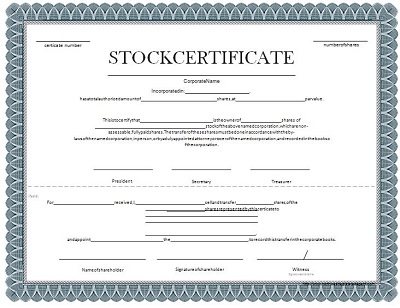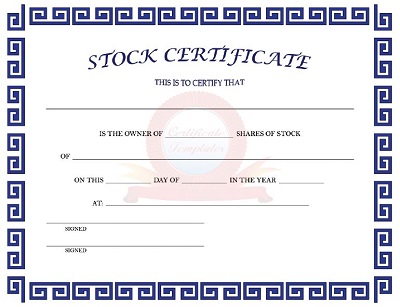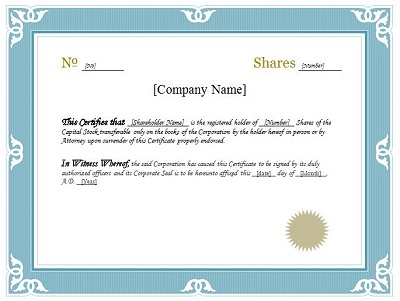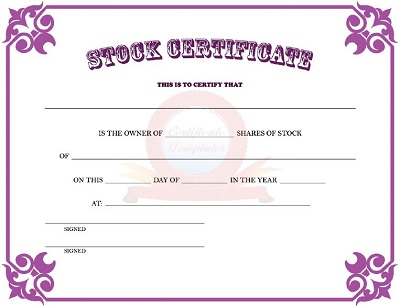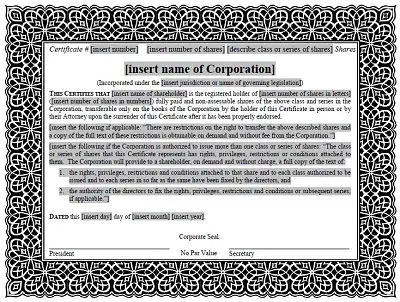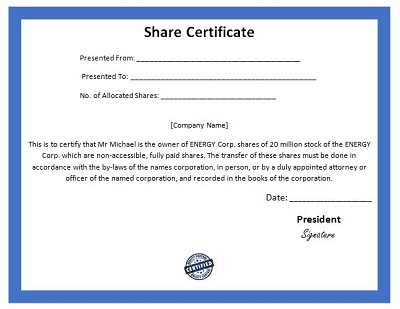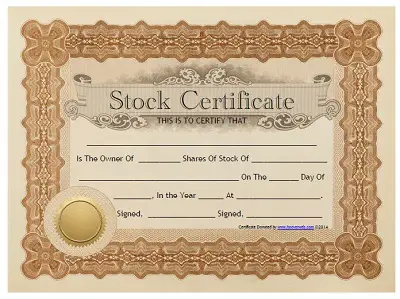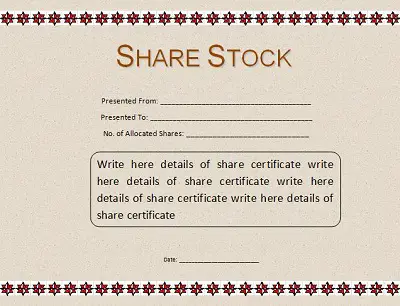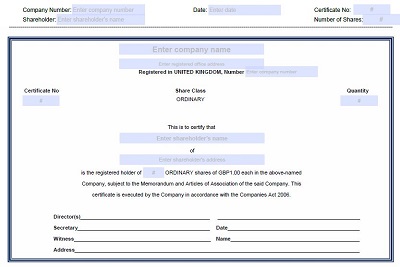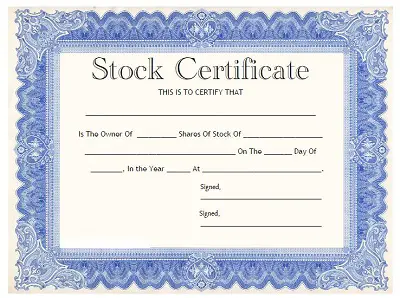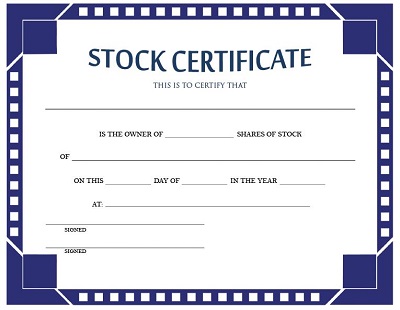16+ Editable Stock Certificate Templates (Front And Back)
Stock certificates provide a real record of ownership shares in companies. Stock certificate templates are available here. They allow shareholders to quickly receive their shareholdings as well as provide a method for the company to issue trackable, secure stock certificates.
Table of Contents
These printable templates can typically be filled out with the name of the shareholder, the class of shares, and the total amount purchased. This information is printed on tamper-resistant paper making it nearly impossible to reproduce or alter without detection. A professional appearance will also be important when competing with new financiers and investors so make sure that any template chosen reflects the high level of professionalism expected from a leading business organization.
What is a Stock Certificate Template?
A stock certificate template is a document outlining the terms and conditions of ownership in a company when someone purchases shares. It contains information such as the name of the company issuing the stocks, the total number of shares, the date of issuance, the class of shares, transferability restrictions, shareholder rights and responsibilities, dividend payment details, and more. These templates are typically provided by state governments or online services that offer customizable options for businesses to create their own certificates.
Why Use Stock Certificate Templates?
Having an official record of ownership in your company helps protect it from potential disputes. It also serves as proof that all shareholders have been informed about their rights and responsibilities as owners of your business. Additionally, certain states may require companies to provide legally-binding stock certificates whenever new shares are issued or transferred between parties. By using an official template from your state government or from an online service provider, you can ensure that your certificates are valid documents that meet all applicable legal requirements.
How to Create an Eye-catching Stock Certificate Template
Whether you’re a small business owner, entrepreneur, or investor, stock certificates are an important part of the investment process. They serve as proof that a company has issued shares to a particular individual, and they also provide investors with important information about the company’s stocks. To ensure your stock certificates look professional and make an impact on potential investors, it’s important to create eye-catching templates that accurately reflect your brand.
Designing Your Stock Certificate Template
The first step in creating an effective stock certificate template is to design it in a way that accurately reflects your brand. This includes choosing the right colors, fonts, and imagery that will help give your template a unique feel while still providing all the necessary information for investors. Consider incorporating your company logo into the design as well, this will help create an even more consistent look between your template and other aspects of your business.
Once you have designed the basic layout for your stock certificate template, it’s time to add in all of the pertinent information that potential investors need to know. This includes details such as the name of the issuing company, the face value of each share, and any other necessary data points. It’s important to be as thorough as possible here so that investors always have access to all the essential information they need when considering investing in your company.
Printing Your Stock Certificate Template
Once you have designed and filled out all of the necessary information on your stock certificate template, it’s time to print them out. Whichever option you choose, make sure to use high-quality paper or cardstock so that they look professional when they reach their destination. Furthermore, consider adding extra security features such as watermarks or holograms if desired, this will help prevent any fraud or tampering with the documents before or after they are signed by both parties involved in the transaction.

